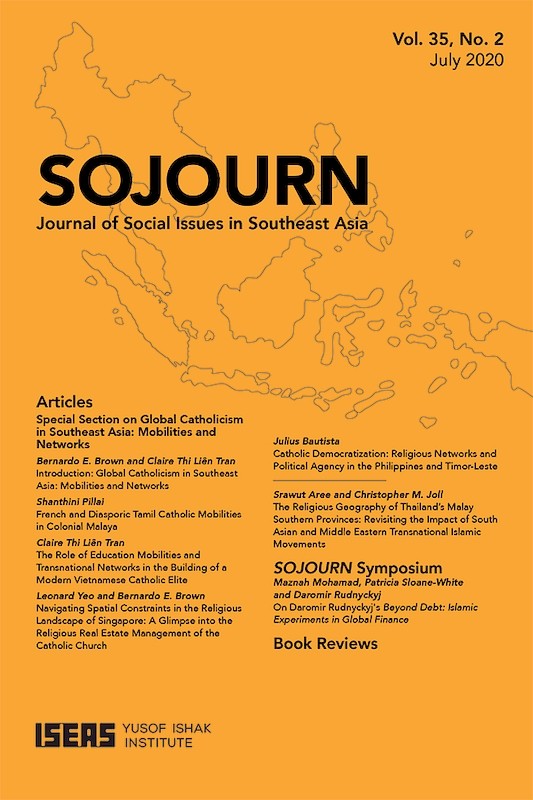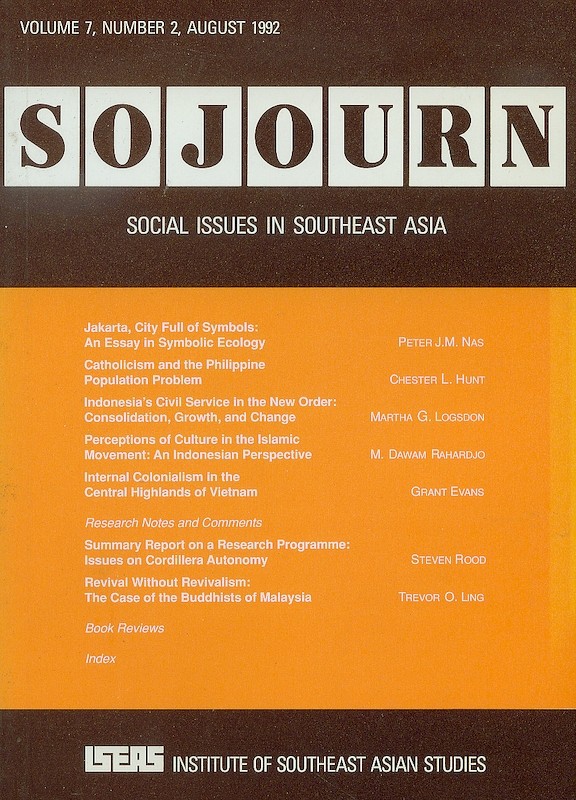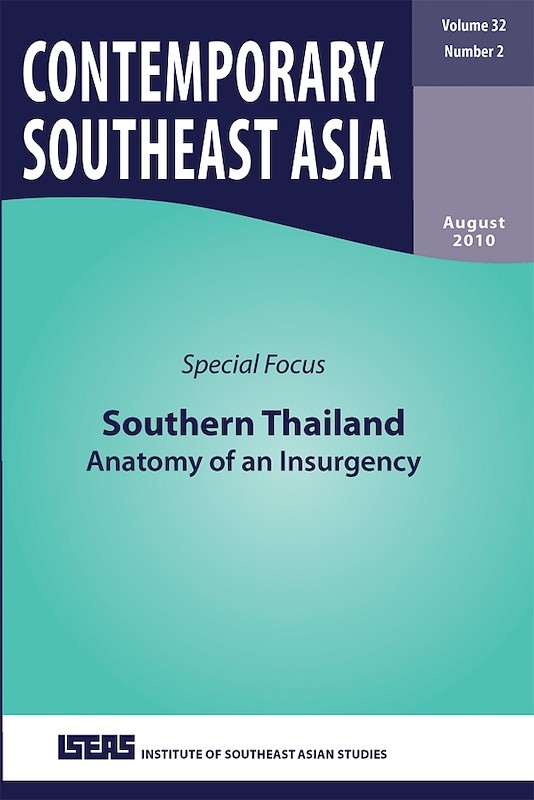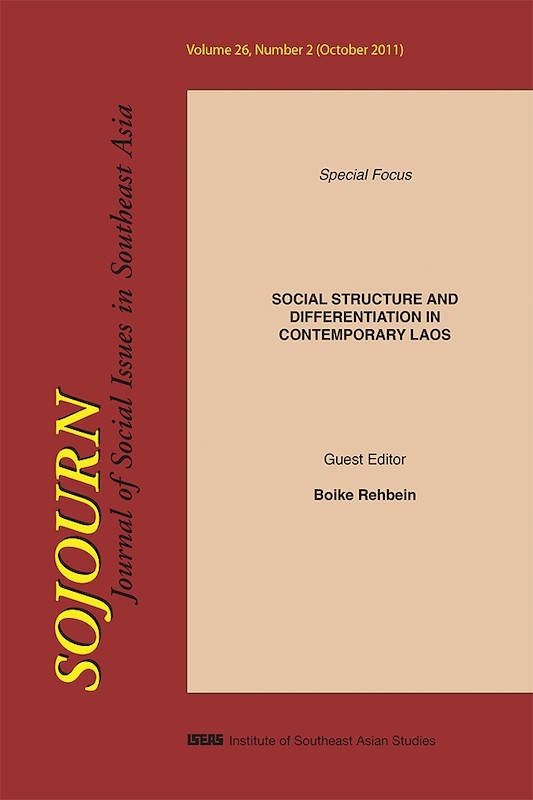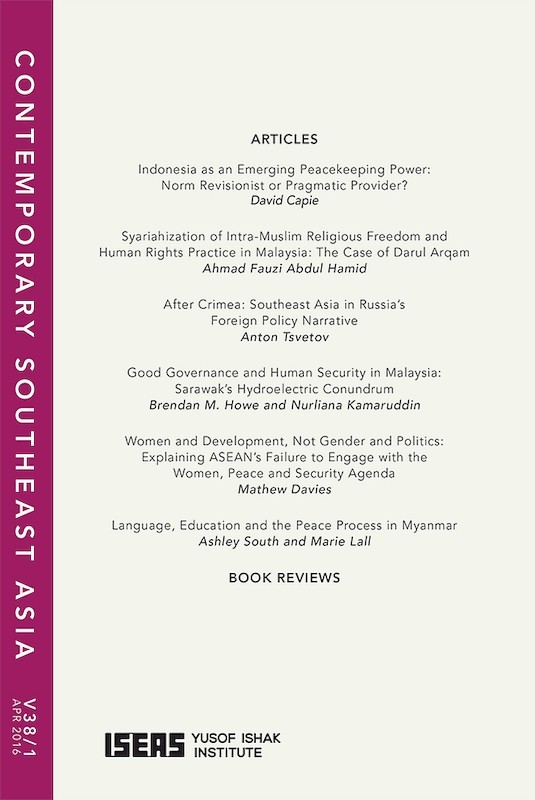SOJOURN: Journal of Social Issues in Southeast Asia Vol 8/1 (Feb 1993). Special Focus on "Religious Revivalism in Southeast Asia"
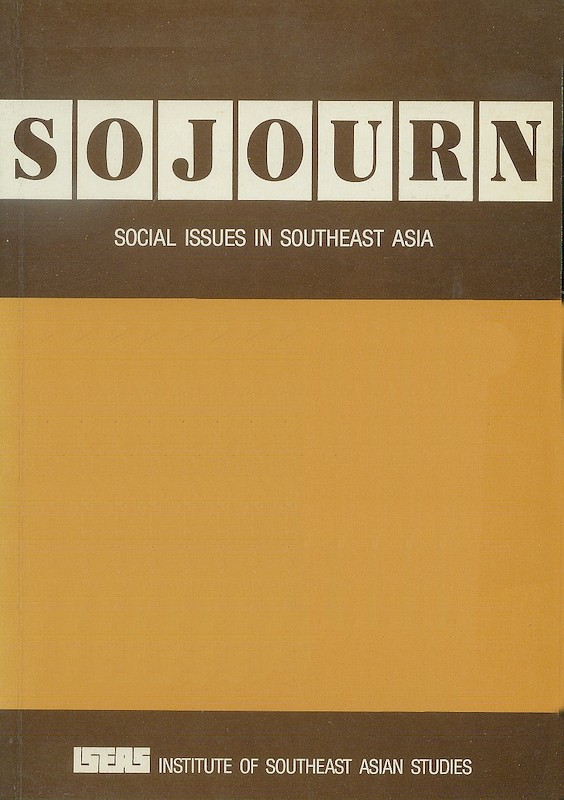
Hans-Dieter Evers, editor
Date of publication:
February 1993
Publisher:
Institute of Southeast Asian Studies
Number of pages:
218
Code:
SJ8/1
Contents
-
Preliminary pages
- Obituary
-
Professor Kernial S Sandhu 1929-1992, by Shamsul A B, author
- ARTICLES
-
Religious Revivalism in Southeast Asia: An Introduction, by Hans-Dieter Evers, Sharon Siddique, authors
-
Modern Interpretation of Animistic Metaphors: An Example from Indonesia, by Reuven Kahane, author see abstractThe paper argues that, in order to make their culture relevant to modern changing conditions, Indonesian society has animized a selective set of symbols, giving them a spiritual power. With this power, these symbols have been transformed into real forces, activated teleologically by human beings according to their interests. This interpretation is anchored in the animistic repertoire of the "religion of Java", as syncretically combined with Hinduism and Islam. This "neo-animism" has been constructed through traditional channels, such as mystical movements (Kebatinanism); theatrical repertoire (wayang); modern literature based on ancient legends; and populist-national symbols (the Pancasila). The legitimation of the regime, its ruling classes, and its developmental processes rely partially on this interpretation.
-
The Globalization of Religious Markets: International Innovations, Malaysian Consumption, by Raymond L M Lee, author see abstractReligion in late capitalism may be conceptualized as an international salvationary market. As suggested by proponents of the secularization thesis, the declining public power of religion frees individuals to privately select from a wide range of religious services without necessarily responding to institutional pressures. In Malaysia secularization is an uneven process, bifurcating religious practices into an Islamic and non-Islamic field. The former is linked to international Islamic institutions and maintains a high public profile with little room for private choice. The latter lacks currency in the political structure and is freer to innovate with less government interference. The aim of this paper is to explore the market implications of religious asymmetry in Malaysia.
-
Buddhist Revitalization, Modernization, and Social Change in Contemporary Thailand, by Jim Taylor, author see abstractThis paper provides both an overview and an analysis of contemporary Thai Buddhism and the changing nature of its traditional relationship with the state. It argues that in recent times as modern urban Thai society has become increasingly differentiated, it has started to question the totalizing and instrumental politicoreligious and moral dimensions of national civic religion. Attention is focused in particular on the expanding and autonomous urban middle-class which led to the emergence of a new cultural gestalt, a reformulation of traditional values and conceptions of social order. Importantly, this social class engendered new fundamentalistic Buddhist movements since the 1960s as a challenge to state hegemony. As a consequence of some thirty years of uneven national development, a number of active rural and urban monks are now confronting such immediate concerns as the stresses and anxieties of urbanization, rural marginalization, and environmental degradation. This, the author suggests, is helping to reshape and redefine conventional religious soteriologies.
-
Re-Islamization among Muslim Youth in Ternate Town, Eastern Indonesia, by Christian G Kiem, author see abstractBased on empirical evidence from the North Moluccas, Indonesia, this paper argues that the recent religious revivalism in several Muslim countries is particularly widespread among youth for whom orthodox Islam has the appeal of a strictly ordered ideological framework which can serve as a defensive mechanism against runaway Western modernity. Islamic resurgence, however, has to be understood not only as a reaction to sociocultural modernization but also as an intra-Islamic development aiming at the purification of religious life from pre-Islamic beliefs and practices. Thus, the emergence of young "Muslim puritans" has contributed to a reformist-traditionalist split in North Moluccan Islam.
-
Rebuilding Sacred Worlds: Lay-Oriented Buddhist and Catholic Reformism in Malaysia, by Susan Ackerman, author see abstractImplicit in the reformist movements that have mobilized Catholic and Buddhist lay people is a strong response to the rapid pace of Islamization and aggressive Protestant evangelism in Malaysia. Catholics and Buddhists, in rebuilding and defending their sacred worlds buffeted by ideological competition and hegemonic technologically based professionalism characteristic of capitalistic culture, have committed themselves to systematic programmes of renewal and reformism that greatly enhance the role of the laity. These programmes, in each case, have taken place within distinctive institutional frameworks. Among Catholics, laicization was initiated by the clergy in the context of reform from above, while among Buddhists the laity themselves took the lead Neither of these routes to laicization can avoid the paradox of secularization. Mobilization of the laity to intensify religious practice, and to systematize world-views and organization, involves a contradictory process of re-enchanting a sacred enclave within a disenchanted world and defending it against the claims and intrusions of other such enclaves by secular methods of organization
-
Empire of Crystal and Utopian Commune: Two Types of Contemporary Theravada Reform in Thailand, by Apinya Fuengfusakul, author see abstractThis paper examines the cultural formation of two contemporary Thai religious movements, Thammakaay and Santi Asok. Both combine, in different manners, certain traditional cultural elements with modern urban life-style and outlook. Thammakaay, as a conformist, revitalizes Theravada belief and practice through accommodation with consumerism. The hierarchical social relations, order, and discipline are restored within a modernized organizational structure and mass rituals. Asoks rituals, practices, merit activities, and model communities, on the other hand, manifest the combination of a post-Modernist and anti-capitalist social outlook with what it perceives as characteristics of a rural community. Different self-perceptions also lead to different attitudes towards the Sangha Order and the state.
- RESEARCH NOTES AND COMMENTS
-
The Urban Educated Middle Stratum and Religion in Southeast Asia, by Niels Mulder, author see abstractThis paper provides a brief description of the signs of vitality of religion among the educated urban middle classes in Indonesia (Java), Thailand, and the Philippines, and analyses in broad outline the reasons for this vitality. In doing this it pays particular attention to the connections between religion and politics, and religion and identity. It relies overwhelmingly on the authors field notes and presupposes prior familiarity with the literature and current developments in Thailand, Indonesia (Java), and the Philippines.
-
Kru-ze: A Theatre for Renegotiating Muslim Identity, by Chaiwat Satha-Anand, author see abstractKru-ze, an officially declared historical site, is said to be a seventeenth century unfinished mosque in Pattani cursed by a Chinese goddess whose shrine is but a stones throw away from it. Recently with the rise of the tourism industry in Thailand, the curse has become commoditized and "Kru-ze" has increasingly become an attractive spot especially for Chinese tourists from Malaysia, whose identities have been threatened. The ancient myth has been reactivated vigorously at a time when the tide of Islamic resurgence is still sweeping Pattani. "Kru-ze" then has become a site for political protest. In the process the curse as well as the official status of the mosque have been questioned by Muslims religious practices, among other things. This paper examines the ways in which Muslim identity is renegotiated through the use of religious belief to strengthen their cause under changing circumstances.

